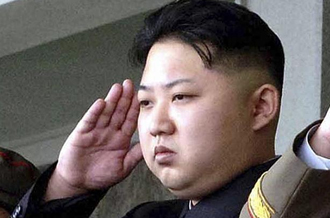Long-suffering North Koreans won’t see any quick changes because of Kim Jong-il’s death. But it will trigger a series of changes likely to result in substantial improvements to their standard of living.
No one can make precise predictions about what will happen in North Korea. But the combination of social, economic and technological changes that have been taking place both inside and outside that unfortunate land have swelled into an impetus for change that no one or group in N. Korea can summon the will to resist much longer.
Despite the best efforts of the Kim regime’s brutal security forces, unblocked TVs, Chinese mobile phones and a leaky internet have raised the awareness of at least a large minority of N. Koreans to the realities of life outside their nation. That awareness has changed their perspective on what their late leader has been.
Once seen as a protector of the Korean people against American imperialism, N. Koreans now know that Kim was, in fact, an impediment to the kind of life enjoyed by people in the South and in China. That kind of knowledge can’t be erased with propaganda or fear tactics. And the awareness of the people’s knowledge has filtered up through the ranks to the highest levels of the N. Korean regime. Certainly Kim Jong-un knows that his people know. To any rational human being, the situation screams for change.
Another force for change is the inevitable change in perspective brought about by the perpetual roll of generations. Even in a benighted land like N. Korea, generational change is a powerful force. A full generation or two have essentially been cowed into oblivion by brutal repression. But another young generation is now awakening to a new level of technology that had never existed.
Young people who know the speed and convenience of the internet and mobile phones can’t see the sense of a regime whose survival must depend on blocking its people’s access to information. A young generation that has seen American movies and basketball games or even S. Korean dramas and music videos can’t get excited about devoting their lives to keeping fellow citizens insulated from the excitement crossing and re-crossing every border and cultural divide.
Despite the best efforts of N. Korea’s geriatric generals to cling to power and control, they have long overextended their generation’s stay at the top. Their flagging energy levels and aching bodies are telling them to retire. Kim Jong-un has reportedly already begun replacing key second-tier leaders with members of his own generation who are two generations younger than most of N. Korea’s top leaders.
No matter how loyal the younger Kim may seek to be to his father’s legacy, he has seen enough outside of his impoverished nation to know that N. Korea can do better, much better. The same can be said of his generational peers who will inevitably long to see their nation move above the economic ranks of sub-Saharan Africa and on a par with that of the South. That desire will push them to see the only possible way to achieve that goal within their lifespans — become aggressive in inviting Chinese, Japanese, Europeans and even those hated Yankees to come in and help build a modern economy.
Of course Kim & Co. will quickly learn that in its current closed state their nation isn’t likely to attract more than a few small efforts at exploiting cheap labor. That’s when the transformation toward an open society will begin in earnest — in a few months, after a decent mourning period. And once it begins, it will accelerate as the new leadership generation learns that it’s a race between their ability to transform their nation and get ahead of the action and the efforts of everyone else to steal the action away. At that point, there will be no turning back.

